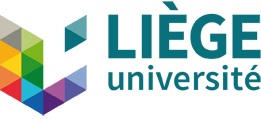 |
| |

|
|
| |
|
Schedule
Click on a link for more details
Show all the abstracts
Download the booklet of abtracts
Thursday 11:00 - 12:20 Routing Problems
Room 138 - Chair: Pieter Vansteenwegen
Thursday 11:00 - 12:20 Emergency operations scheduling
Room 130 - Chair: El-Houssaine Aghezzaf
Thursday 11:00 - 12:20 Algorithm design
Room 126 - Chair: Gerrit Janssens
Thursday 11:00 - 12:20 Multiple Objectives
Room 120 - Chair: Filip Van Utterbeeck
Thursday 13:30 - 14:50 Integrated logistics
Room 138 - Chair: Kris Braekers
Thursday 13:30 - 14:50 Person transportation
Room 130 - Chair: Célia Paquay
Thursday 13:30 - 14:50 Continuous models
Room 126 - Chair: Nicolas Gillis
Thursday 13:30 - 14:50 Integer programming
Room 120 - Chair: Bernard Fortz
Thursday 15:20 - 16:20 Material handling and warehousing 1
Room 138 - Chair: Greet Vanden Berghe
Thursday 15:20 - 16:20 Operations management
Room 130 - Chair: Roel Leus
Thursday 15:20 - 16:20 Matrix factorization
Room 126 - Chair: Pierre Kunsch
Thursday 16:30 - 17:10 Material handling and warehousing 2
Room 138 - Chair: Katrien Ramaekers
Thursday 16:30 - 17:10 Routing and local search
Room 130 - Chair: An Caris
Thursday 16:30 - 17:10 Traffic management
Room 126 - Chair: Joris Walraevens
Thursday 16:30 - 17:10 Pharmaceutical supply chains
Room 120 - Chair: Bart Smeulders
Friday 10:50 - 12:10 Optimization in health care
Room 138 - Chair: Jeroen Beliën
Friday 10:50 - 12:10 Network design
Room 130 - Chair: Jean-Sébastien Tancrez
Friday 10:50 - 12:10 Local search methodology
Room 126 - Chair: Patrick De Causmaecker
Friday 10:50 - 12:10 ORBEL Award
Room 120 - Chair: Frits Spieksma
Friday 13:00 - 14:00 Production and inventory management
Room 138 - Chair: Tony Wauters
Friday 13:00 - 14:00 Logistics 4.0
Room 130 - Chair: Thierry Pironet
Friday 13:00 - 14:00 Data clustering
Room 126 - Chair: Yves De Smet
Friday 13:00 - 14:00 Collective decision making
Room 120 - Chair: Bernard De Baets
Friday 14:10 - 15:10 Sport scheduling
Room 138 - Chair: Dries Goossens
Friday 14:10 - 15:10 Discrete choice modeling
Room 130 - Chair: Virginie Lurkin
Friday 14:10 - 15:10 Data classification
Room 126 - Chair: Ashwin Ittoo
- A density-based decision tree for one-class classification
Sarah Itani (University of Mons)
Co-authors: Fabian Lecron & Philippe Fortemps
- Comparison of active learning classification strategies
Xavier Siebert (Faculté Polytechnique de Mons)
Co-authors: Nouara Bellahdid, Moncef Abbas
Abstract:
Modern technologies constantly produce huge quantities of data. Because these data are often plain and unlabeled, a particular class of machine learning algorithms is devoted to help in the data annotation process. In the setting considered in this paper, the algorithm interacts with an oracle (e.g., a domain expert) to label instances from an unlabeled data set. The goal of active learning is to reduce the labeling effort from the oracle while achieving a good classification. One way to achieve this is to carefully choose which unlabeled instance to provide to the oracle such that it most improves the classifier performance. Active learning therefore consists in finding the most informative and representative sample. Informativeness measures the impact in reducing the generalization error of the model, while representativeness considers how the sample represents the underlying distribution. In early active learning research the approaches were based on informativeness, with methods such as uncertainty sampling, or query by committee. These approaches thus ignore the distribution of the data. To overcome this issue, active learning algorithms that exploit the structure of the data have been proposed. Among them, approaches based on the representativeness criterion have proved quite successful, such as clustering methods and optimal experiment design. Various approaches combining the two criteria have been studied: methods based on the informativeness of uncertainty sampling or query by committee, and a measure of density to discover the representativeness criterion, others methods combine the informativeness with semi-supervised algorithms that provide the representativeness. In this work, we review several active learning classification strategies and illustrate them with simulations to provide a comparative study between these strategies.
- Risk bounds on statistical learning
Boris Ndjia Njike (Université de Mons)
Co-authors: Xavier Siebert
|
|
| |
ORBEL - Conference chair: Prof. A. Arda -
Platform: Prof. M. Schyns.
|
|
 |
|





